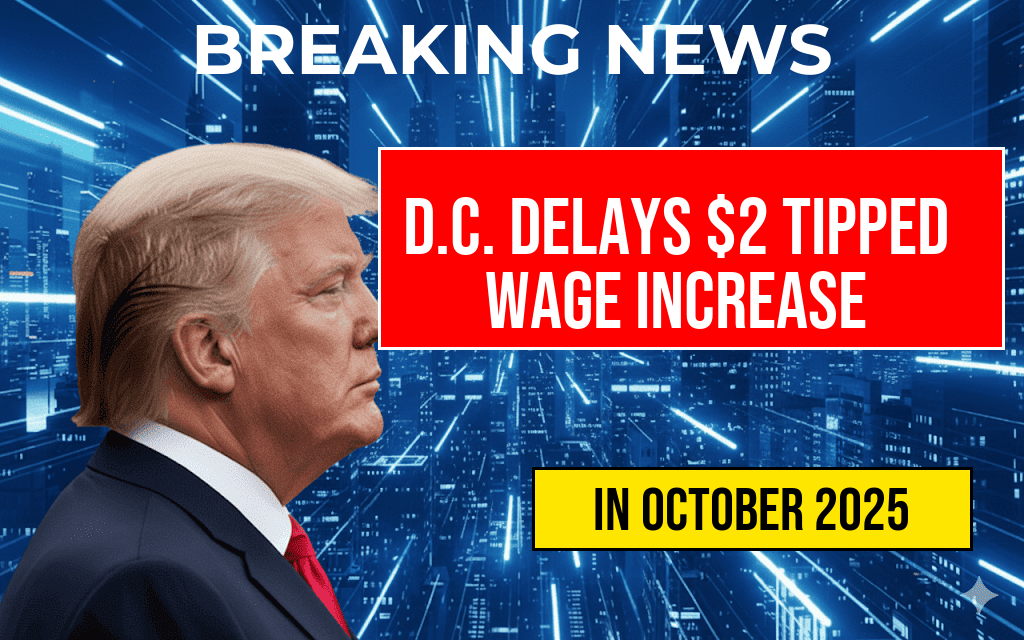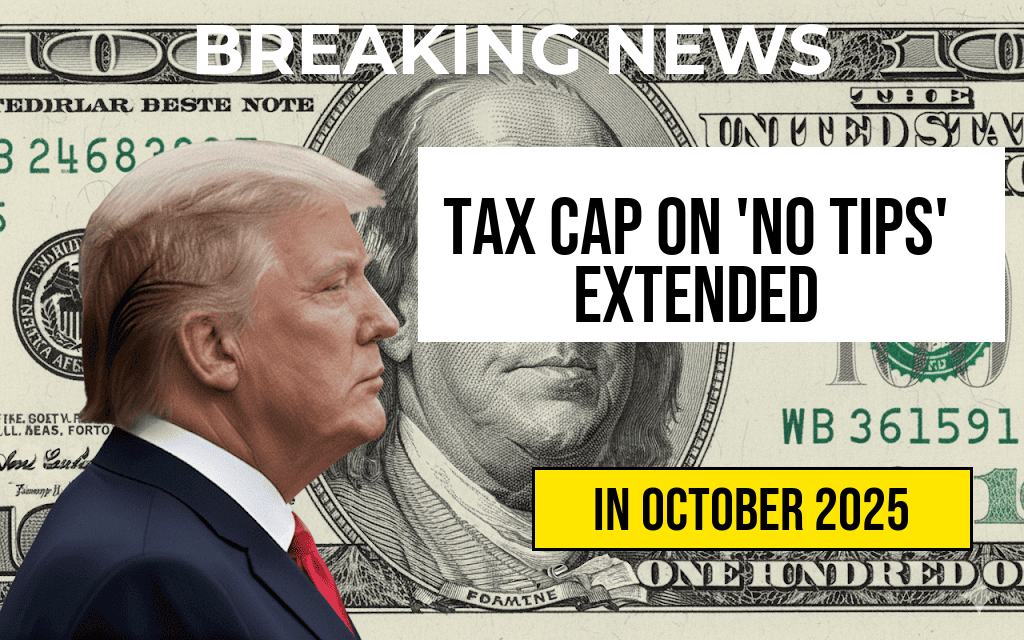The District of Columbia has postponed a significant increase in the tipped wage, a decision that could potentially cost servers an estimated $4,160 annually compared to the original proposal. The postponed legislation, which aimed to raise the tipped minimum wage from $5.05 to $15 per hour over the next few years, has faced scrutiny from both supporters and opponents. Advocates argue that the increase would provide a more stable income for workers in the hospitality industry, while opponents claim it may lead to increased prices for consumers and job losses. The delay, announced earlier this week, has left many in the service industry concerned about their financial stability and the future of their profession.
Understanding the Tipped Wage Structure
In D.C., the tipped wage is a critical component of the earnings structure for many service workers. The current minimum wage is $16.10 per hour, but tipped employees are legally allowed to earn a lower base wage, with the expectation that tips will supplement their income. The proposed legislation sought to align tipped wages more closely with the standard minimum wage, reflecting the rising cost of living in the capital.
Details of the Proposed Wage Increase
- Current Tipped Wage: $5.05 per hour
- Proposed Tipped Wage: $15.00 per hour by 2026
- Annual Loss for Servers: Estimated at $4,160
Reactions from Service Industry Workers
The delay has sparked widespread discontent among service industry workers who rely heavily on tips for their livelihoods. Many servers expressed frustration, arguing that the current wage structure is insufficient to meet their basic needs. “We work hard for our money, and it’s disheartening to see our wages remain stagnant while the cost of living continues to rise,” said Maria Sanchez, a server at a popular restaurant in downtown D.C.
Supporters of the increase, including labor unions and advocacy groups, have stated that a higher tipped wage would not only benefit individual workers but also improve overall job satisfaction and service quality in the hospitality sector. “When workers are paid fairly, they are more likely to stay in their jobs, which leads to better service for customers,” noted Tom Reed, a representative of the Restaurant Workers Union.
Opposition to the Wage Increase
Conversely, some restaurant owners and industry representatives have voiced concerns regarding the proposed wage hike. They argue that raising the tipped wage could lead to higher menu prices, reduced hiring, and even layoffs. “We want to pay our workers fairly, but we also have to consider the sustainability of our businesses,” said John Adams, owner of a local diner. “If costs go up, we may have to pass that onto customers, which could deter them from dining out.”
Economic Implications of the Delay
The economic implications of delaying the wage increase are significant. Many experts believe that maintaining a low tipped wage can perpetuate poverty among service workers, making it difficult for them to afford housing, healthcare, and education. A recent report by the Economic Policy Institute highlighted the disparities faced by tipped workers compared to their non-tipped counterparts, emphasizing the need for policy changes to address income inequality in the service sector.
| Year | Current Tipped Wage | Proposed Tipped Wage | Annual Income (40 hours/week) |
|---|---|---|---|
| 2023 | $5.05 | $5.05 | $10,504 |
| 2026 | $5.05 | $15.00 | $31,200 |
Next Steps for the Legislation
With the delay now in effect, city officials are expected to revisit the proposed wage increase in the coming months. Stakeholders from both sides of the argument are being encouraged to participate in discussions aimed at finding a compromise that addresses the needs of workers without jeopardizing local businesses. As the debate continues, many in the service industry remain hopeful for a resolution that will provide them with the financial security they need.
For more information on the current minimum wage laws and the implications of wage increases, visit the Wikipedia page on Minimum Wage or read the analysis from Forbes.
Frequently Asked Questions
What is the proposed tipped wage increase in D.C.?
The proposed tipped wage increase in D.C. aimed to raise the minimum wage for tipped workers, such as servers, significantly, impacting their overall earnings.
How much could servers potentially lose annually due to the delay?
Due to the delay in the tipped wage increase, servers in D.C. could potentially lose up to $4,160 annually compared to the original proposal.
Why was the implementation of the tipped wage increase delayed?
The implementation of the tipped wage increase was delayed to allow for further discussions and considerations regarding its impact on the hospitality industry.
Who will be most affected by this delay?
The delay will primarily affect servers and other tipped workers in D.C., who rely on tips for a significant portion of their income.
Is there any hope for the tipped wage increase to be implemented in the future?
While the current proposal is delayed, there is still hope that a revised tipped wage increase may be considered in the future as discussions continue.






